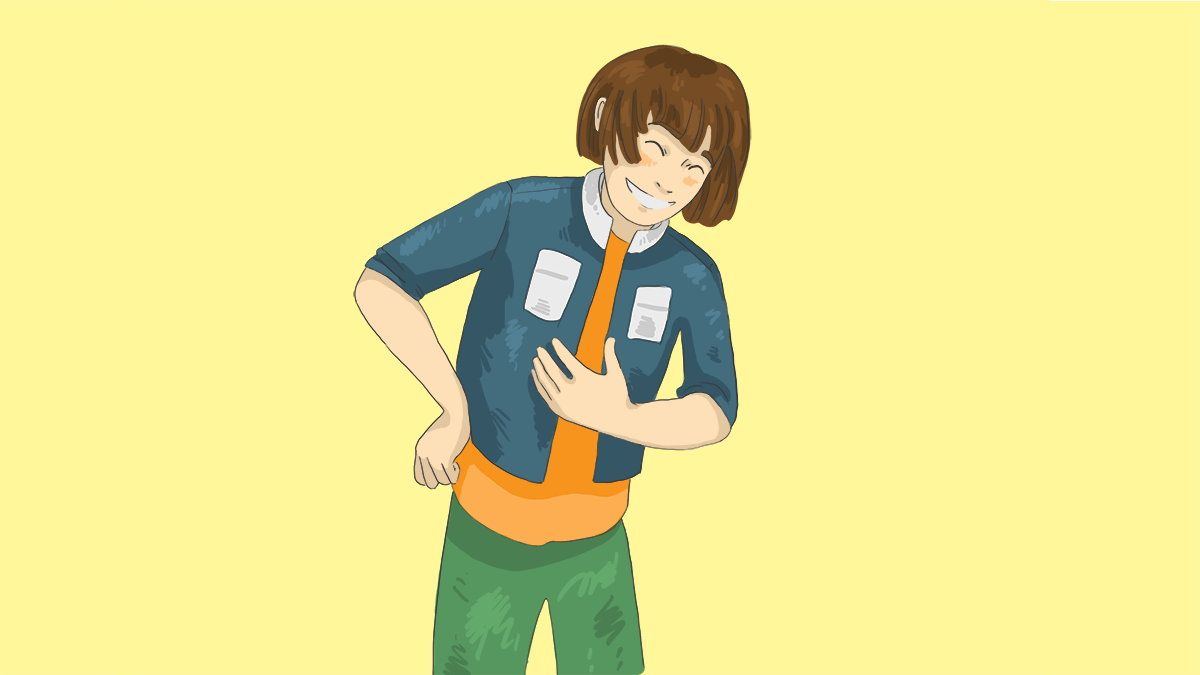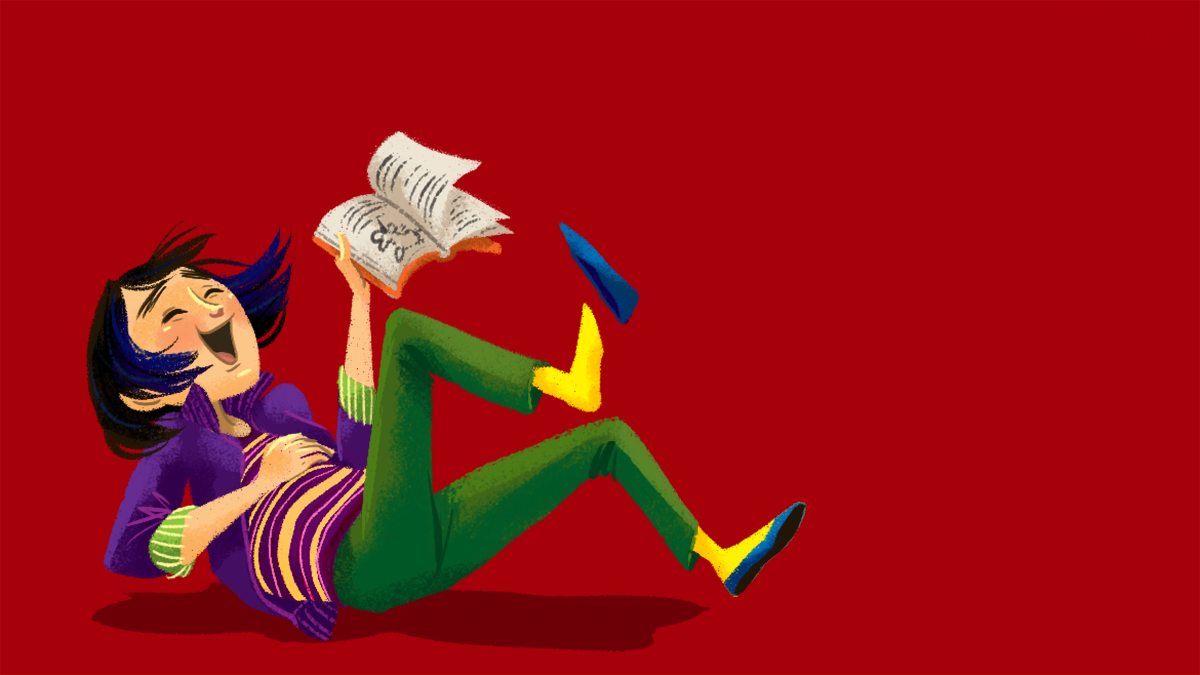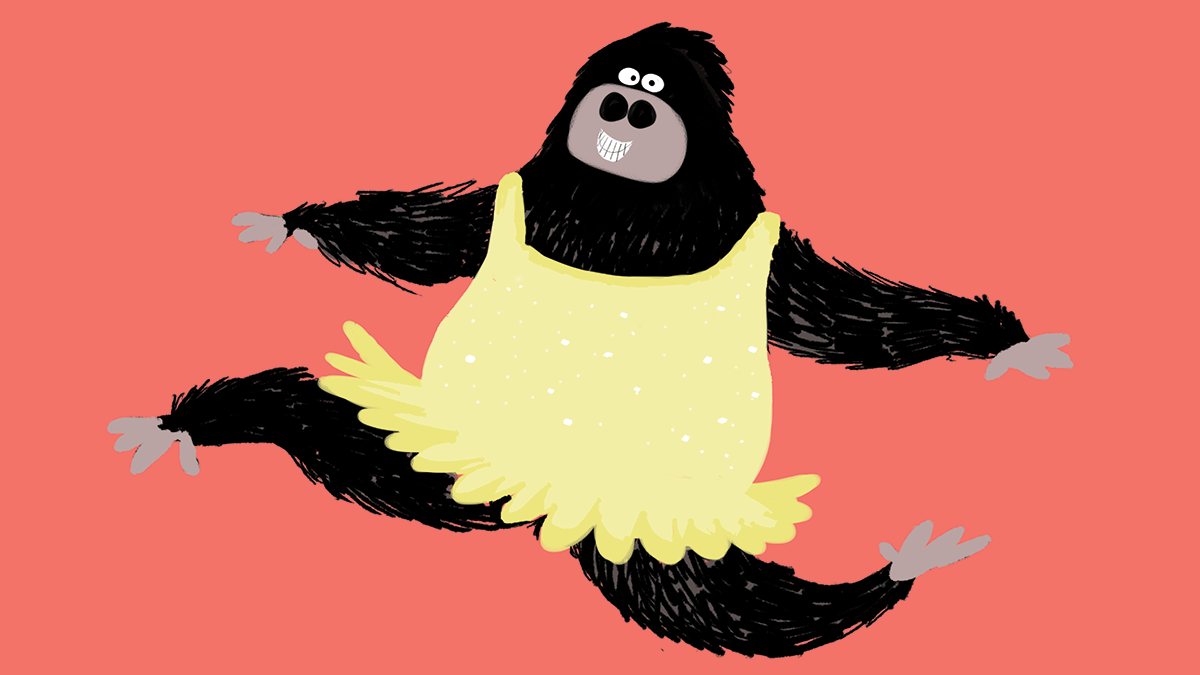How to write comedy, by Tiernan Douieb
Tiernan shares his top tips on turning your funny jokes into a piece of quality comedy writing.

You want to write comedy? Well it's easy. I've just done it and didn't even use a spell check. I'd definitely suggest starting with a 'c' rather than a 'k' as that sounds either wacky or German and either way there will be prejudices about what type of humour it is. Oh, sorry, comedy writing? I see.
Well, first try not doing the most God-awful joke you can in your very first sentence. That's a definite no-no. To be honest, I can't tell you how to write comedy as such. I'm very much a subscriber to the 'either you're funny or you're not' party. However even if you have the invite to that very party, there's a high chance you might not know quite how to utilise the correct chat for the kitchen, or the right outfit to wear, in the same way I've never worked out how to do a decent analogy.
What I'm saying is that if you're a funny chap or chapette, there are some things that definitely hone those powers into a neat bit of witty prose, rather than a bundle of nearly funny cons...
Tip 1: I know this is obvious, but watch, read and listen to a lot of comedy.
Work out exactly what makes you laugh and why. Is it the style of humour or the content? Does surrealism make you howl with laughter or do you prefer dry, observational witticisms? You are never going to make someone laugh unless you know what makes you laugh. Simple as.
You don't have to write in exactly the same way as those who've tickled your funny bone, but if it makes you laugh, chances are you'll enjoy writing that style more and it'll be far more likely to make someone else laugh too.
If you're not already a comedy fan then seek out all types. Try everything from Douglas Adams and Terry Pratchet to Will Self and David Sedaris. Watch Chris Morris, Spaced, 15 Stories High and Stewart Lee, but also Michael McIntyre, Mongrels and Gavin and Stacey. It's the only way you'll work out what's for you. Yes, it sounds like a lot of effort, but at least you'll be laughing for some of it.

Tip 2: Similar to the above tip, and yes, I promise the tip after this will be of different, though it should be said that the art of repetition is a very good tip in itself.
I would be tempted to just repeat the above tip three times for good proof of this, followed by repeating it constantly over and over again, sending it in emails to you and letters and texts until its so ludicrous its funny, but that would seem gratuitous. Not only that but this tip has nothing to do with repetition.
This tip is about finding your voice. In the same way as with any book, documentary or even speech, its far more engrossing if you can identify the voice of the reader, narrator or main character quickly. Work out if you're writing as you, or prefer to write in an extended version of you or even as a completely different character.
Tip 3: Whichever voice you choose for yourself, try your best to keep your humour consistent with it.
'What?' I hear you cry. Well don't cry, that won't help you write comedy at all. Though schadenfraude is another useful tool. Anyway, I digress once again. What I mean is make sure the comedy you are writing is on a level and with a subject matter or reference that that voice would use.
In the world of live comedy as a stand-up I aim to come across fairly friendly on stage and so I know I can't do dark evil jokes that comedians such as Jimmy Carr or Jim Jeffries could get away with. In the first 30 seconds the audience have decided who they think I am, and while I can play with that to an extent, pushing jokes to a reasonable boundary, if I take it too far and break that image, they can feel cheated and suddenly be a whole lot less warm. Believe me, I've been there many a time and learnt very quickly from those horrible mistakes.
At the same time, as an audience member, I hate watching a stand-up say something I know for a fact they don't really think or agree with, and you can tell that the humour feels forced and unnatural. Would you expect Harry Hill to do a political rant? No. It'd feel odd. At the same time, the odd cheeky, slightly political comment might work. Would you expect Alan Carr to make reference to the Higgs Boson Particle? No, but if he did and followed it with a gag about men in lab coats being fetching then you just might go with it. Allow your audience to work out who you are and then you can throw all the funnies you like at them.
Tip 4: There is, oddly enough, some theory in comedy.
Freud wrote a highly dull book called Jokes And Their Relation To The Unconscious. For a book about comedy it contains very little of the subject matter, but then again the Freudian slip is the least funny of all slapstick motions. The book contains one useful notion, which is that for comedy to work it must always have a victim. Someone or something is always demeaned or ridiculed to initiate laughter from the audience. I always dispute that this in no way accounts for surrealist humour, praying that no-one clever would point out surrealist humour prays on realism as its victim.
Anyway, I'm not a fan of all comedy theory but some bits are definitely useful. Kant's incongruity theory for example, which works on the basis that comedy comes from an unexpected result. To display this I'll use one of my favourite ever Douglas Adams lines from the Hitchhikers Guide To The Galaxy (a bible of how to write comedy if you ask me): 'The ships hung in the sky in much the same way that bricks don't.'
Perfect stuff. Why is it so funny? Well, quite simply, the end of the sentence is not at all what you expected it to be. It is a comparison, but not as we know it. Far from helping us to imagine the gravity defiance of the spacecrafts, we are told to imagine the opposite in order to work out how they are being the opposite. It's brilliantly absurd and yet also follows another bit of comedy theory - that of Koestler.
He worked on the idea of bisociation, which is when comedy arises from two very normal frames of reference colliding, creating something unexpected. So looking at the Adams quote again, we can imagine how spaceships might operate, and we can imagine how bricks plummet to the ground, but the joining of those two ideas in a comparison is what makes it so funny.
I personally think Koestler's idea is important. Even the best surreal comedy comes from some grounding in reality. Much like knowing your comedy voice, you need to get the audience on board your humour train at the first stop if you want them to enjoy the journey. (Wow. I think that's the worst analogy yet. Let's hope for signal failure and a crash soon.)
What I mean is that your audience have to be able to imagine the situation, and if you immediately throw them off course with heaps of overly weird things, they won't get there. All the best science fiction stories are based on notions or fears already in society, in order for these extreme realities to seem at least slightly plausible. Comedy works in very much the same way. See, you had no idea that you could be clever about being stupid, did you?

Tip 5: Get someone you trust to read what you've written.
When doing live comedy you have the very lucky - and sometimes very unlucky - opportunity to find out whether your humour is funny there and then. When it's not it can be a particularly painful experience but you get to learn exactly how to make it work based on doing more of what works. With writing you don't get that unless you let others you trust read it. Find out what they found funny or didn't and work with that feedback.
Don't feel you need to change everything you do based on response, but comedy either makes people laugh or smile and its far better to find out if it doesn't before you release those 50,000 words into the world. I have a few people whose sense of humour I trust and I enjoy, and I trust them to be honest with me. Without them, this would be even more difficult to read than it is now.
Tip 6: Ok, I know this sounds like cliché city, and several will read this and briefly sick into a bag, worried that I'll polish off the whole piece with a moral message about not giving drugs to pets or something, but here it is. Have fun doing it.
Been sick yet? Good. Now wipe that bit from the side of your chin and let's continue. I mean it, you really have to enjoy writing comedy. You can tell when someone's enjoyed writing something funny as its even funnier. In the same way, those scripts and gags hacked out just because someone is being paid to do them will never make you gut-laugh in the same way as something that's been written by a writer who cared.
Spaced is one of my favourite ever sitcoms. Its combination of quick gags, slick writing, yet honest, touching characters and storylines makes it one of the best sitcoms of the last 20 years, in my humble opinion. However, while a large part of it is down to the talent of the people involved, I'm also sure its to do with the fact that Simon Pegg and Jessica Stevenson were good friends who wrote it because they wanted to. Every time they are interviewed about it, they talk about how enjoyable the process was.
When watching stand-ups (thinking of up-and-coming star, ace comic and chum Carl Donnelly specifically here) you can tell when they are enjoying telling the jokes they are proud of as it beams out of them on stage, infecting the audience with the enthusiasm that they have.
I write a daily blog. This is mostly because I'm a sadomasochist who can't ever enjoy just relaxing and partly as a vehicle to get me to write everyday. If you write because you have something to say, an idea you want to share or a joke you want to tell, it'll really show. Don't just write because you think you should or for a reward. Do it for you and others will feel that in the content.
Final thoughts...
There's loads more I could try and cram in here, whether it be looking at the use of metaphors or exaggeration, or where you prefer to write (my flatmate sits in Caffé Nero making a herbal tea last as long as humanly possible, whilst I prefer to get up slowly and lounge about until inspiration hits me in the face, which is usually after breakfast and seeing Holly Willoughby on This Morning).
But to be honest, the best thing you can do with comedic writing is find your own style based on your likes and influences. You might read through this and find none of these tips remotely helpful because they don't fit your style. Instead you'll find that you prefer to write using the most remote ideas, in a constantly contradictory voice, never letting anyone read what you write and it might be the next humour bestseller, top sitcom or best bit of stand-up anyone's heard in years.
The comedy rulebook is always being rewritten. I would say 'just get writing' and 'good luck' but to be honest I'm sick of all the brilliant competition so kindly ignore everything that I've said and go write some great crime fiction.
